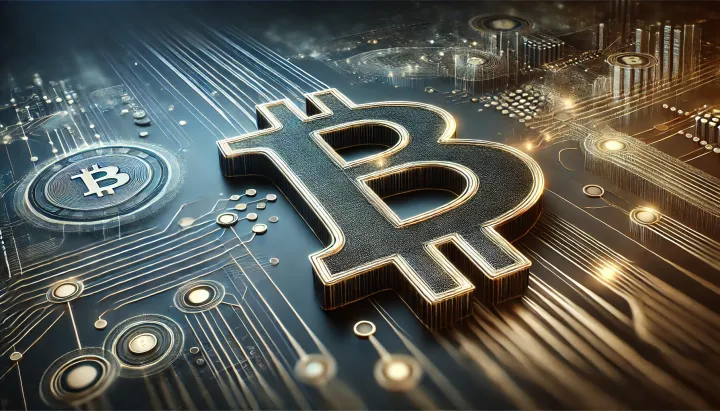Examining Bitcoin Mining’s Role in Energy and Media: Misunderstandings and Opportunities
The April 21, 2023 episode of What Bitcoin Did features Lane Rettig delves into Bitcoin mining’s often-misunderstood environmental impact and its portrayal in mainstream media, examining the industry's renewable energy usage and demand response capabilities.

- My 'briefing notes' summarize the content of podcast episodes; they do not reflect my own views.
- They contain (1) a summary of podcast content, (2) potential information gaps, and (3) some speculative views on wider implications.
- Pay attention to broadcast dates (I often summarize older episodes)
- Some episodes I summarize may be sponsored: don't trust, verify, if the information you are looking for is to be used for decision-making.
Summary
The April 21, 2023 episode of What Bitcoin Did explores Bitcoin mining’s media portrayal, environmental impact, and unique demand response capabilities. Lane Rettig critiques media bias in reporting Bitcoin’s environmental footprint, highlights Bitcoin mining’s potential as a grid-stabilizing asset, and underscores the industry’s leadership in renewable energy adoption. The discussion challenges prevailing narratives and emphasizes the need for balanced, data-driven policy.
Take-Home Messages
- Media Misinformation: Biased media portrayal significantly affects public perception and policy toward Bitcoin mining.
- Demand Response Value: Bitcoin mining’s demand response flexibility offers unique support for grid stability.
- Sustainability in Mining: Bitcoin mining leads many sectors in renewable energy adoption, countering environmental critiques.
- Policy and Regulatory Balance: Informed, balanced policies can prevent media-driven misconceptions from shaping regulations.
- Public Understanding: Accurate information on Bitcoin’s environmental and social benefits is essential for wider acceptance.
Overview
In this April 21, 2023 episode of What Bitcoin Did, Peter McCormack and Lane Rettig discuss recent media portrayals of Bitcoin mining, focusing on a New York Times article that, according to Rettig, misrepresented Bitcoin’s environmental impact (sorry, it's behind a paywall). Rettig critiques the lack of objective journalism in mainstream outlets, arguing that biased reporting fosters polarization and misunderstanding. They emphasize that public opinion, shaped by such portrayals, may affect future regulatory approaches to Bitcoin mining, impacting the industry’s role in the energy sector.
The conversation shifts to Bitcoin mining’s demand response capability, a feature enabling miners to scale down energy usage during peak demand, thus supporting grid stability. McCormack and Rettig position this flexibility as beneficial to the broader energy infrastructure, especially in grids with high renewable energy penetration. Unlike many traditional industries, Bitcoin mining can quickly adjust its consumption, potentially saving costs and easing grid strain during high-demand periods.
Rettig then addresses Bitcoin mining’s renewable energy adoption rates, noting that miners are increasingly relying on sustainable sources, which places the industry ahead of several other sectors in renewable integration. This progress, however, remains underreported, partly due to persistent media bias that overshadows the industry's environmental contributions. McCormack and Rettig argue that these efforts warrant public recognition as they reflect Bitcoin mining’s capacity to align with green energy goals.
Finally, the discussion considers the broader implications of misinformation, particularly its influence on regulatory perspectives. They caution that, without accurate information, policies may become unnecessarily restrictive, undermining Bitcoin mining’s positive contributions to the grid and environmental initiatives. For Bitcoin mining to be evaluated on factual grounds, the industry needs clearer, unbiased communication about its technological benefits and environmental practices.
Stakeholder Perspectives
- Bitcoin Miners: Concerned with maintaining favorable regulations and public support, especially as media portrayals may not reflect their renewable energy commitments.
- Environmental Advocacy Groups: Generally critical but may re-evaluate perspectives with improved data on renewable energy adoption within Bitcoin mining.
- Energy Sector: Recognizes Bitcoin mining’s potential as a flexible demand resource, beneficial for grid stability in regions with fluctuating energy demand.
- Policymakers: Interested in shaping balanced regulations based on comprehensive, unbiased data, though possibly swayed by media narratives.
- General Public: Often influenced by mainstream media’s portrayal, potentially missing insights into Bitcoin mining’s environmental efforts and grid contributions.
Implications
This podcast highlights how media representation impacts Bitcoin mining, particularly regarding its role in energy consumption and grid support. Biased media portrayal can shape public perception and, consequently, regulatory approaches, making it challenging for Bitcoin mining’s potential environmental contributions to be fairly evaluated. For policymakers, understanding Bitcoin mining’s renewable energy use and demand response benefits can provide a more balanced foundation for regulatory decisions.
Additionally, Bitcoin mining’s ability to scale its energy usage to meet grid demands showcases its potential as a flexible, renewable-compatible industry model. If recognized and supported through policy, Bitcoin mining could lead other industries in adopting flexible energy practices, contributing positively to grid stability, especially in renewable-heavy areas. Ensuring accurate communication and unbiased media reporting will be crucial in realizing this potential and supporting balanced policy development.
Future Outlook
Looking ahead, Bitcoin mining could become a key player in renewable energy and grid stability, provided it receives fair recognition for its adaptability and renewable energy integration. As renewable adoption continues to grow within the mining sector, Bitcoin miners may serve as a prototype for sustainable industrial energy usage. Policymakers will need to consider these contributions to prevent overly restrictive regulations that hinder this potential.
For the industry to reach its full capacity, transparent communication about Bitcoin’s grid benefits and environmental efforts is essential. Bridging the current gap between media portrayal and factual understanding may enable a regulatory environment that supports innovation and sustainability. Bitcoin mining’s unique position as a demand-flexible industry could thus influence future policy in sustainable energy management, benefiting both the grid and renewable energy initiatives.
Information Gaps
- How does media portrayal, particularly in mainstream outlets, impact public perception and policy decisions related to Bitcoin mining? Media coverage can significantly influence both public opinion and regulatory policy. Identifying the degree of media influence on policy decisions could clarify the need for accurate reporting on Bitcoin mining’s environmental and societal impact.
- What specific economic benefits can Bitcoin mining’s demand response capabilities offer to local and national grids? Demand response capabilities can support grid stability and potentially reduce costs. Understanding the direct economic benefits can guide incentives that encourage Bitcoin mining to participate in demand response programs. [see our more recent paper on this issue]
- How could emissions reporting methodologies be improved to reflect the real impact of Bitcoin mining on carbon emissions? Current methodologies may not fully capture Bitcoin mining’s emissions impact, particularly regarding renewable energy usage. Improved methodologies could help present a more accurate environmental profile of Bitcoin mining.
- What are the environmental benefits of increased renewable integration within the Bitcoin mining industry? Quantifying the environmental impact of renewable energy use in mining could enhance public and regulatory perspectives. Understanding these benefits can support policy alignment with sustainable practices in Bitcoin mining.
- What safeguards can ensure balanced regulatory policies that accurately reflect Bitcoin mining’s environmental impact? Developing balanced policy safeguards could prevent undue restrictions based on media misrepresentation. This research could help shape fair and data-driven regulations for Bitcoin mining and similar energy-intensive sectors.
Broader Implications
Media Influence on Public and Regulatory Perception
Media portrayal of Bitcoin mining, especially when skewed or incomplete, influences public opinion and can lead to restrictive policies. Accurate information is essential for fostering a regulatory environment that recognizes both the benefits and challenges of Bitcoin mining. Addressing biased media narratives can empower policymakers to develop fair regulations that support sustainable industry growth.
Bitcoin Mining as a Model for Energy Flexibility
Bitcoin mining’s demand response capability offers a template for energy-intensive industries in managing power consumption flexibly. This adaptability could inspire other sectors to adopt similar practices, supporting grid resilience, especially as renewable energy becomes more prevalent. Bitcoin mining may thus play a pioneering role in demonstrating how industry can harmonize with renewable energy requirements, promoting long-term sustainability.
Expansion of Renewable Energy Use in Industrial Applications
With its high adoption of renewable energy, Bitcoin mining sets a precedent for sustainable practices in other energy-intensive sectors. Increased renewable integration within Bitcoin mining could encourage further investment in sustainable energy sources, contributing positively to the broader clean energy transition. This trend also enhances Bitcoin mining’s environmental standing, challenging outdated narratives on its carbon footprint.
Potential for Demand Response Policy Incentives
Bitcoin mining’s operational flexibility aligns well with potential demand response policy incentives, which could financially benefit miners while enhancing grid stability. Such policies may prioritize energy reliability and incentivize industries to adopt demand-response practices, reducing the need for traditional grid expansions. This approach underscores Bitcoin’s role in shaping policy innovations that integrate sustainability with industry needs.
Socioeconomic Impacts of Sustainable Bitcoin Mining
As Bitcoin mining aligns with renewable energy goals, it presents opportunities to address socioeconomic challenges by fostering investment in underserved or resource-rich regions. Sustainable mining practices could drive local economic growth and job creation, especially in areas with untapped renewable potential. This growth can reduce resistance to Bitcoin mining, reframing it as a contributor to positive regional development rather than a resource drain.



Comments ()